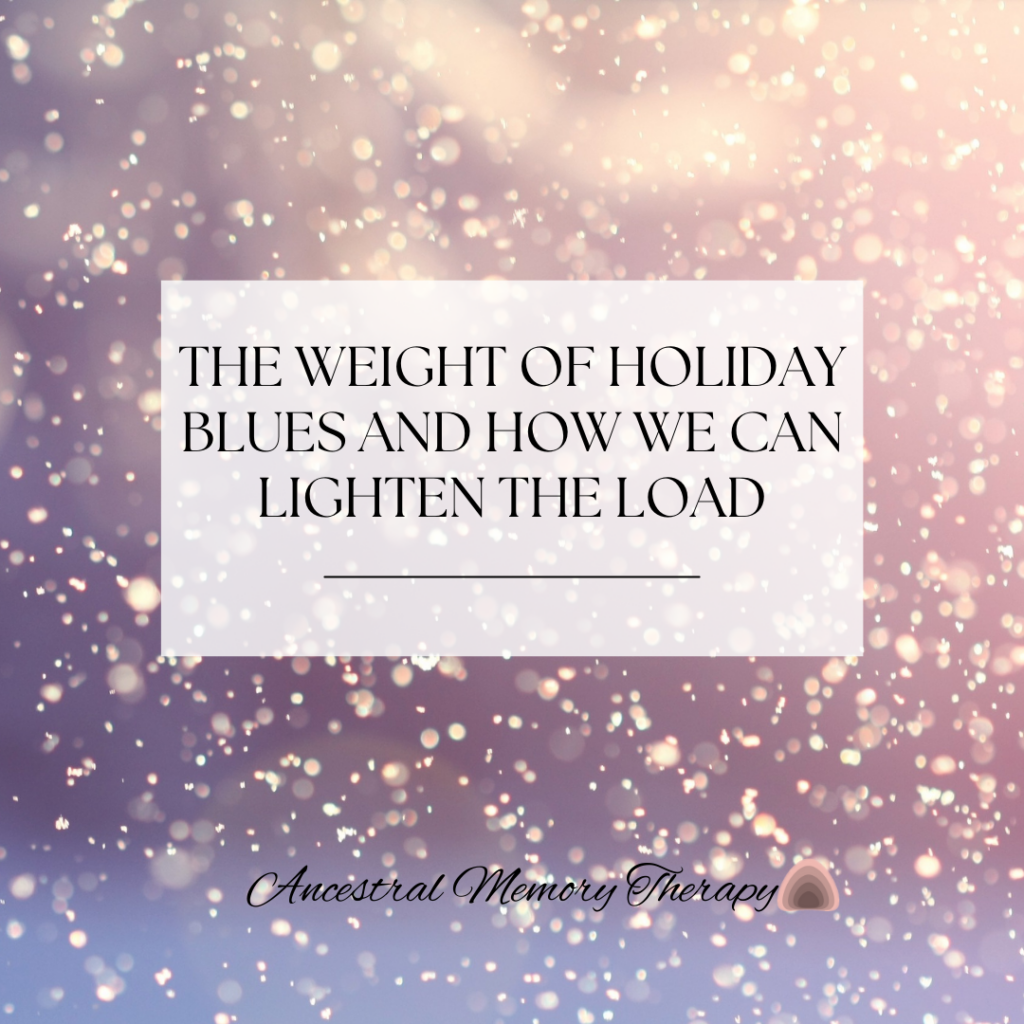Another year has already come to pass. We celebrate collectively and individually when positive events occur. Yet, unfortunately, it’s no secret that 2024 has carried a lot of heaviness for us all. The change in the political climate in Canada, with our neighbours down south, and around the world, is harrowing. Across the globe, genocide and war is ravaging beautiful cities and claiming the lives of hundreds of thousands of people, including children. Presently, the casualties in Ukraine, Gaza and Sudan collectively, are in the 489,000s. A distressing number that continues to climb.
Climate change and its temperature and weather patterns have shifted our seasons.
There have been storms with brute force, snow in places we couldn’t fathom, and summers hotter than anything in the record books. The mentioned shifts can leave many with a sense of despair, thinking about the tumultuous road ahead.
Feelings of hopelessness and despair may deepen during the holiday season for those who feel disconnected from family and community. This is called holiday season depression or the holiday blues. For many, the holiday season and depression go hand in hand. The most wonderful time of the year can easily become the most difficult. Trying to navigate a personal loss, trauma or holiday stressors can naturally heighten feelings of despair and hopelessness, loneliness and sadness.
Symptoms and behaviours of the holiday blues
The holiday season can be a joyous time, but accompanied by the demands of hosting, organizing gatherings, juggling family dynamics and financial pressures can all be overwhelming. Holiday season depression (not to be confused with seasonal depression that is more severe) typically starts at the beginning of November or December, ending shortly after the new year—with mild symptoms. However, outside of the melee, signs of the holiday blues can start to creep in.
Some symptoms of the holiday blues or holiday depression can include:
- An irritable mood
- A change in usual sleeping patterns
- Feeling more tired than usual
- Feelings of anxiety and distress
- Feelings of despair and hopelessness
- Feelings of isolation
- Difficulty concentrating
- An increase in alcohol consumption
Making new traditions
Traditions can act as an anchor to routine. It also promotes a sense of belonging. Creating new traditions adds meaning to celebrations and brings everyone together through connection. Outside of the turbulent times, traditions ground us. Whether through family or community, creating a space where everyone can come together to celebrate what’s important acts as an adhesive and balm.
The positive aspect of making new traditions is the memories that are made with the ones we love. And knowing these traditions can be passed down. The unity behind the tradition can alleviate feelings of loneliness, create a bond through quality time spent, and nurture your spirit in the process. Invite a few friends and family members over whose company you enjoy. You can also indulge in solo traditions like perusing the holiday market with a warm cup of hot cocoa from your favourite vendor. Or a spa day to rejuvenate your senses. Set your boundaries and do what works for you. Don’t be afraid to try new things, and start something new.
Key connections are crucial
Refrain from isolating yourself. It can only magnify your symptoms. Find and connect with like-minded people who won’t become a stressor, but rather amplify your setting. Staying socially connected is detrimental to your happiness. It can help promote overall well-being and mental health.
A few ways to start new connections are:
- Joining an advocacy group: Is there a community group you’ve wanted to join? There’s no time like the present. Sign up for a great cause and make new acquaintances simultaneously.
- Meet-up groups: What’s your passion? Music, stage plays or art? There are many apps available that provide groups to join—regardless of your creative outlet. The arts are a fantastic way to get out, discuss and have a great time.
- Group exercise: Working out keeps you moving and healthy. Take group exercise into consideration. Engaging in workouts with others can be a fun leisure activity to look forward to weekly.
- Therapy: Seek professional help if you feel that things are intensifying. Put your mental health first. Outlets like Ancestral Memory Therapy can assist you with managing the holiday blues. Reach out to someone to talk about what you’re feeling.
The holiday season can be a difficult time of year. If it becomes overwhelming, set aside some time for self-care, reach out to loved ones and stay busy or don’t shy away from therapy. The tide will turn and more pleasant times are on the way.




